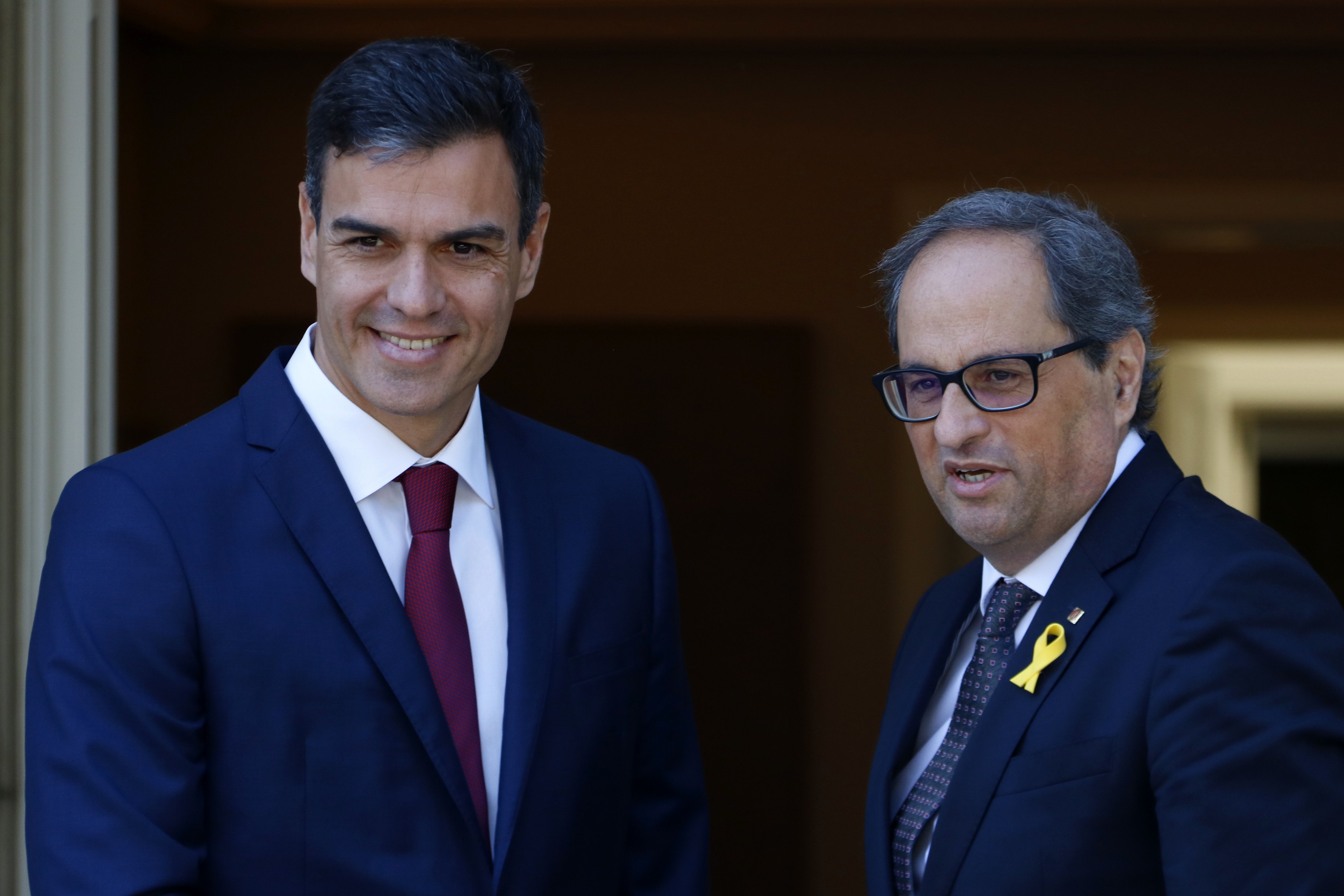Despite its recent zigzags, the Spanish government is sending the message that its "commitment to dialogue is firm". With less than 48 hours until Thursday's meeting in Barcelona between prime minister Pedro Sánchez and Catalan president Quim Torra, the Spanish executive says that it will stay seated at the table until points of encounter are found, but emphasizes that it will not be easy. After today's meeting of the Spanish cabinet, coalition spokesperson María Jesús Montero lowered expectations. No-one is expecting any results in the short term, nor will a calendar and negotiating teams be produced this Thursday. At the moment the Spanish side also rules out the figure of a mediator, which Torra's party JxCat has once more raised as an option.
At Thursday's meeting, the Spanish PM will sit down with a "constructive spirit", with a sincere desire to engage in dialogue and "listen" to what the Catalan president has to say. However, at the government's Moncloa palace, they stress the "complexity" of the conflict which will be on the table. On several occasions, spokesperson Montero made it clear that "they do not expect short-term results" but merely to "lay down the tracks" in order to continue "moving". In Barcelona, Sánchez will be accompanied by his territorial minister, Carolina Darías, although she won't be taking part in the meeting between the two leaders.
As for the content of the meeting, the Spanish government insists that it is a first contact and that there will be no agenda for the day. No red lines for president Torra. "We are at polar opposites from each other in our concepts of the state, that is why dialogue is important," said the Socialist minister. "If there were areas of agreement, this meeting would not be necessary," she insisted. "We need to talk, listen, go to the meeting with the clear intention of finding points in common," she concluded.
She even went so far as to make a comparison with the Spanish Transition at the end of the Franco era, underlining the great differences between former Francoist minister Adolfo Suárez and communist leader Santiago Carrillo. "When they sat down they were at the antipodes of each other, but they were able to find points of encounter, and that is what we want," she said. "We all know each other's positions and we want to transcend them to find those meeting points," she reiterated. She avoided saying that there would be a veto on self-determination, but they will try to address the issue, as well, through the "everyday" problems of Catalonia.
"[The meeting] must allow and enable us to make progress on the path of dialogue, which will allow us to reach a political solution to the conflict in Catalonia," said the Spanish government spokesperson. "The solution is complex. It will need time, intelligence, empathy and an ability to anticipate the challenges of Catalan society," said Montero.
On the figure of a mediator between the two sides, which Catalan government spokesperson Meritxell Budó had put back on the table on Monday, coalition executive sources say that at present it "is not planned" and they are not working on such a scenario.
Referendum by mistake
It was probably some sort of Freudian slip, but during the press conference the Spanish government spokesperson seemed to call for a referendum. Asked about the effect of the early election in Catalonia, Montero responded by speaking of the "referendum that had been called in Catalonia". It was left to government communications secretary Miguel Ángel Oliver to put her right as she ended her reply: "Minister, erratum. An election, not a referendum, right?"
The agreement to create a bilateral negotiation table between Catalan and Spanish administrations, aimed at addressing the political conflict, was reached between Catalan pro-independence party ERC and the Spanish Socialists (PSOE) as part of the formula for facilitating Pedro Sánchez with sufficient parliamentary votes to form a new government. Last Thursday, the Socialists appeared to have unilaterally decided to break this commitment, but hours later they corrected this position, reinstating this Thursday's meeting as the first encounter aimed at establishing dialogue.

